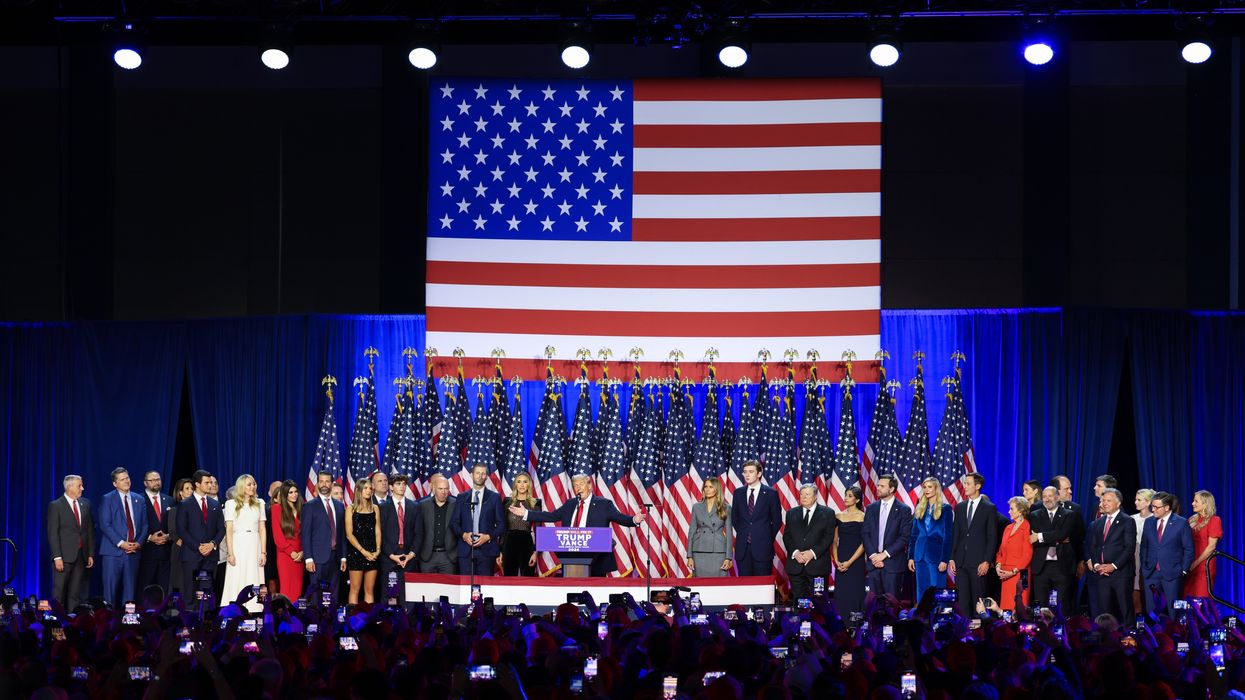Nevins is co-publisher of The Fulcrum and co-founder and board chairman of the Bridge Alliance Education Fund.
In October 2012, I published an op-ed in the Huffington Post asking, “ Do Presidential Elections Really Matter? ” In May 2023 I wrote a similar column in The Fulcrum asking the question once again.
Unfortunately, in the 12 years since my first writing little has changed. Both Democrats and Republicans believe if their nominee gets elected, the serious problems our country faces will be tackled with a new vigor, and real change will actually occur. But is this really what history suggests will generally be the case?
Take the deficit problem as an example. In 2010, the bipartisan National Commission on Fiscal Responsibility and Reform (often called Simpson-Bowles or Bowles-Simpson after ots co-chairs, Alan Simpson and Erskine Bowles) was created to identify policies to deal with the spiraling deficit. While economists and politicians universally believe that we must tackle the deficit problem, our nation’s deficit has exploded in the ensuing 14 years.
Does anyone really believe this urgent national problem will be addressed if the liberal wing of the Democrat Party is unwilling to cut entitlements and conservative Republicans are unwilling to raise revenue?
So often in our history a new president comes into office with lofty ideals only to be stymied by the system. Yet politicians and the media overplay the importance of the outcome of presidential elections in determining the direction our country will take in the four years following the election. More often than not our national elections merely validate an establishment that never really changes.
I suggest this is exactly what is likely to occur today, unless a new paradigm is created that changes the temperament and the process by which Congress operates. The president can propose legislation, the president can use the bully pulpit, but the president's hands will be tied if we have a divided Congress, one in which lawmakers are more interested in scoring points against the other political party than in solving problems.
For our nation to address the complex problems we face, a new paradigm is needed that changes the current incentives of not reaching across the aisle to find common ground, so that our government can better serve the people by addressing the great issues of our time. Yet, the concept of Republicans and Democrats working together is not as simple as one might think given the need to overcome the powers in Washington that discourage cooperation. The lobbyists, the PACs, and the party leadership all have a vested interest in putting their position and their party above the common interests of the country.
And so, nothing gets done and problems get worse.
The American electorate is fed up with Congress putting party before country. That's why almost half of the voting public are independents, refusing to be labeled by any party affiliation. A poll conducted in August indicates that only 19 percent of Americans approve of how Congress functions and believe it is serving their interests. And that's why it is time for a change.
Change is never easy in Washington, D.C. It will not be easy to overcome the power of interest groups and party leaders. Our political parties have organized themselves into warring clans that value defeating the other side over even the most basic acts of governing. Given that many of the problems with America's government have become election-proof, change is needed.
We've been inundated the last six months, as happens before every election, with politicians making promises about how they will fix our tax system, reform immigration laws, improve our schools, address budget problems; all promises made and never fulfilled. After every election, these promises are crushed under the weight of the same poisonous rhetoric and partisan posturing.
It is time that we learn that America doesn't just need new people in office. We need a commitment to a new politics of problem solving. A politics that values a core belief that the search for solutions should be based on reason, logic and inquiry, where a conclusion follows from a set of premises, not the other way around. A new politics is needed that allows room for people from different parties and with different beliefs to sit around a table and make the tough decisions everyone knows need to be made.
Thomas Jefferson recognized that democracy was born from discourse and discussion, and that the resulting discussion would overflow with differing perspectives and opinions. Our Framers believed ideological differences would ultimately lead to inquiry, and inquiry to truth. In their writings to each other, they discussed how civil discourse and critical thought were essential for their grand experiment in democracy.
If this election and future elections are going to really matter it is time for the vision of Jefferson and the other Framers to be realized. Our nation's motto "E pluribus unum" (out of many, one) must become the standard we demand of our candidates and of our elected officials. We must demand a new politics that allows room for people from different parties and with different beliefs to sit around a table and make the tough decisions everyone knows need to be made. And we need to trust in the intentions of the loyal opposition to be a differing perspective for the public good.
Unless this happens, I will again ask in 2028, 2032 and beyond: Do elections really matter?




















 From left to right: Gabriel Cardona-Fox, Bud Branch, Joe Concienne
From left to right: Gabriel Cardona-Fox, Bud Branch, Joe Concienne 